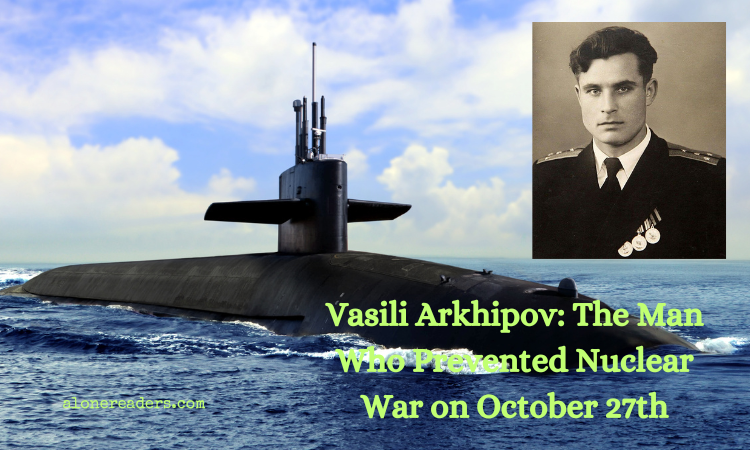
October 27th is a date that holds immense significance in the annals of history, not for an event that took place, but rather for one that did not. On this day, the world teetered on the brink of an all-out nuclear war. The unlikely hero? Soviet navy officer Vasili Arkhipov, who made the momentous decision to refrain from firing a nuclear weapon at a US warship during the height of the Cuban Missile Crisis. Here's a detailed account of the events leading up to, during, and following that fateful day.
The Cuban Missile Crisis of October 1962 was a 13-day confrontation between the United States and the Soviet Union. It was initiated by the discovery of Soviet ballistic missile deployments in Cuba. The proximity of the island to the US mainland—just 90 miles away—posed an alarming threat.
These missile installations were perceived by the Kennedy administration as a provocative act, endangering US national security. In response, President John F. Kennedy ordered a naval blockade, dubbed a "quarantine" to avoid war terminology, around Cuba to prevent further Soviet shipments of military hardware.
Amid the high tensions of the blockade, on October 27th, the Soviet submarine B-59 found itself surrounded by US Navy destroyers near Cuba. Unbeknownst to the US forces, this submarine was armed with a nuclear torpedo.
Due to the depth at which the B-59 was operating, it lost radio contact and was unaware of the current state of affairs above the surface. The US Navy began dropping depth charges, not to harm the sub, but to force it to surface. However, the crew of B-59 perceived this as an act of war.
The three senior officers aboard—Captain Valentin Savitsky, the political officer Ivan Maslennikov, and the flotilla commander Vasili Arkhipov—had the authority to launch the nuclear torpedo. Both Savitsky and Maslennikov believed that war had broken out and wanted to launch the torpedo. Arkhipov, however, disagreed.
Despite the immense pressure and the weight of the two other votes against him, Arkhipov argued against launching the torpedo. His steadfastness in that moment of intense crisis ultimately convinced Savitsky to surface the submarine and await orders from Moscow.
Arkhipov's decision was a pivotal moment in the Cuban Missile Crisis, and many historians believe it prevented the situation from escalating into a full-blown nuclear war. Both the US and the Soviet Union realized the dangerous precipice they stood upon, leading to a de-escalation of hostilities and the eventual resolution of the crisis. On October 28th, Khrushchev announced the removal of Soviet missiles from Cuba, and in return, the US secretly agreed to remove its missiles from Turkey and promised not to invade Cuba.
Arkhipov's actions on that critical day have made him an emblematic figure of peace and rationality during times of extreme crisis. His legacy serves as a poignant reminder of the human capacity for reason and the profound responsibility vested in those who hold the world's fate in their hands.
In the annals of history, certain individuals emerge as heroes not for their acts of aggression but for their restraint. Vasili Arkhipov is one such individual, whose level-headedness during a pivotal moment of tension arguably saved the world from a catastrophic nuclear conflict. As we remember the events of October 27th, it's essential to acknowledge and celebrate those who choose peace over war, even when faced with the most harrowing of circumstances.